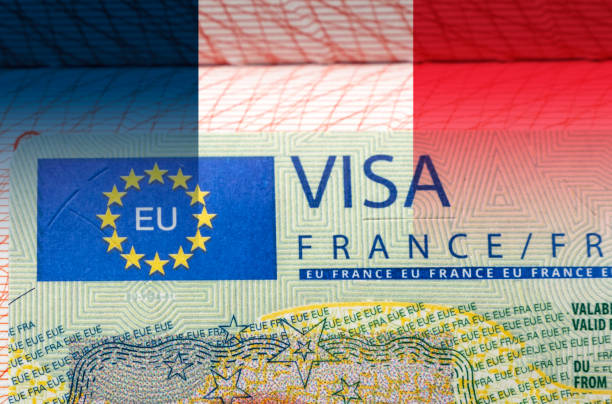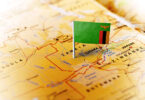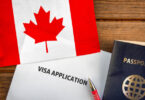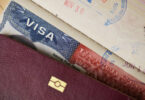Are you dreaming of a trip to France, whether for tourism, business, or even to visit friends and family?
The Schengen visa allows Nigerian citizens to visit France and other countries within the Schengen Area. But how can you successfully navigate the application process?
Don’t worry! This guide will walk you through everything you need to know to apply for a France Schengen visa from Nigeria, including step-by-step instructions, the required documents, costs, and tips for a smooth application.
Overview of the France Schengen Visa
The Schengen visa allows non-EU nationals to travel to and stay in any of the 27 Schengen Area countries. France, being a member of the Schengen Zone, is one of the countries you can visit with this visa. The beauty of the Schengen visa is that once you have it, you can travel to multiple countries in the Schengen Area, as long as they are included in your travel itinerary.
Why choose the France Schengen visa?
France, with its stunning landscapes, rich history, and cultural attractions, is one of the most popular destinations for international travelers. From the Eiffel Tower to the French Riviera, France offers endless exploration opportunities. With the Schengen visa, you not only get access to France but also to other countries in Europe. It’s a ticket to unforgettable adventures across the continent!
Types of Schengen Visas for France
Before diving into the application process, it’s important to understand the different types of Schengen visas that you might need depending on your travel purpose. France issues several visa categories under the Schengen framework:
Tourist Visa
This is the most common type of Schengen visa for visitors coming to France for leisure purposes. If you’re planning to explore the country’s iconic landmarks or relax on its beaches, this is the visa for you.
Business Visa
If you’re traveling to France for business meetings, conferences, or to explore professional opportunities, the business visa is the one you’ll need.
Family/Visit Visa
This visa is for travelers visiting relatives or friends who are residents of France. You will need an invitation letter from the person you are visiting.
Student Visa
For those planning to study in France, the student Schengen visa allows you to stay for the duration of your academic program. However, for long-term studies, you will need a national visa, not just a Schengen one.
Transit Visa
If you’re passing through France to reach another destination, you might need a transit visa, especially if you’re stopping at a French airport.
Step-by-Step Guide to Apply for a France Schengen Visa from Nigeria
Obtaining a France Schengen visa may appear challenging, but with proper preparation, the process is simple. Here’s a guide on how to apply for a France Schengen visa from Nigeria:
1. Determine the Type of Visa You Need
The first step in applying for a Schengen visa is determining which visa type fits your purpose of visit. Whether you’re traveling for tourism, business, or any other purpose, make sure you choose the right visa category. This will determine the supporting documents required.
2. Gather Required Documents
A crucial aspect of a successful visa application is providing all the necessary documents. Here is a list of the documents commonly required when applying for a France Schengen visa from Nigeria:
Visa Application Form: Complete the Schengen visa application form online, print it, and sign it.
Passport: Your passport must be valid for at least three months beyond your planned return date and have at least two blank pages.
Photographs: Two recent passport-sized photos that comply with the Schengen visa photo specifications.
Travel Itinerary: A detailed itinerary of your trip, including flight reservations and hotel bookings.
Travel Insurance: Provide evidence of travel insurance that includes coverage for medical emergencies and repatriation, valid across all Schengen countries with a minimum coverage of €30,000.
Proof of Financial Resources: Demonstrate your ability to support yourself financially during your stay in France. Acceptable documents include bank statements, pay stubs, or an employer’s letter.
Cover Letter: Submit a personal letter outlining the purpose of your trip to France and specifying your travel dates.
Accommodation Details: Provide proof of accommodation, whether it’s a hotel reservation or an invitation letter from a friend or family member.
Visa Fee: Pay the required visa fee (more on this later).
3. Schedule Your Appointment
Once you have gathered all the required documents, the next step is to schedule an appointment at the French Consulate in Lagos or the French Embassy in Abuja. You can do this through the official visa application website or VFS Global, the agency that handles Schengen visa applications for France in Nigeria.
4. Attend Your Visa Appointment
On the day of your appointment, make sure to arrive early. Bring all your documents and any additional documents requested by the consulate or VFS Global. During the appointment, a visa officer will ask you questions about your travel plans and may take biometric data (fingerprints and photo).
5. Pay the Visa Fee
The France Schengen visa fee is generally around €80 for adults and €40 for children aged 6-12. However, this fee can vary depending on the type of visa you’re applying for. Payments are typically made online or during your visa appointment.
6. Wait for Processing
After submitting your application, the French consulate will process your visa. This can take anywhere from 5 to 15 business days, depending on the time of year and the complexity of your case. It’s advisable to apply at least 3-4 weeks before your planned travel date, but you can apply up to six months in advance.
7. Collect Your Visa
Once your visa is approved, you will be notified by VFS Global or the consulate to collect your passport. If your application is rejected, you will receive an explanation, and you can appeal the decision if necessary.






